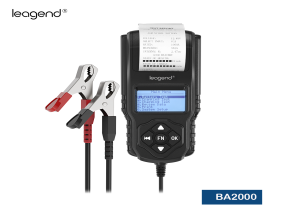Highlights:
- Imagion Biosystems is leading the charge in cancer diagnostics with its MagSense platform for HER2+ breast cancer.
- Noxopharm focuses on innovative treatments for glioblastoma through its Chroma platform.
- Amplia and Invion are pioneering cancer therapies, with Amplia developing FAK inhibitors and Invion using Photodynamic Therapy.
The healthcare sector on the Australian Stock Exchange (ASX) is witnessing significant innovation, particularly in the field of oncology. A number of emerging companies are making strides in both cancer diagnostics and treatment solutions. While larger pharmaceutical companies dominate the space, smaller ASX-listed firms are contributing to transformative changes in cancer care. Below are some key players pushing the boundaries of cancer research and treatment.
Noxopharm: Advancing Glioblastoma Treatments
Noxopharm (ASX:NOX) is dedicated to discovering new treatments for cancer and inflammatory diseases. The company’s focus is on glioblastoma, a highly aggressive brain cancer with few effective treatment options. Noxopharm’s work is centered on its Chroma platform, developed in collaboration with the University of South Australia. The company's emphasis on creating novel therapies for glioblastoma aims to address the critical unmet medical needs in the oncology sector, particularly in a disease known for its poor survival rates.
Through its innovative approach, Noxopharm is working to redefine how this challenging condition is managed, positioning itself as a key player in the oncology field.
Imagion Biosystems: Revolutionizing Cancer Diagnostics
Imagion Biosystems (ASX:IBX) is redefining cancer diagnostics through its proprietary MagSense platform, which integrates molecular imaging with MRI technology. This system allows for more precise cancer diagnosis and staging. Initially, Imagion is focusing on HER2+ breast cancer, an area with high demand for improved diagnostic accuracy. The company has already commenced production of its imaging agent for a planned clinical trial.
This innovative technology aims to provide a more non-invasive, personalized diagnostic method, offering a glimpse into the future of cancer care where early detection could lead to better patient outcomes. Imagion’s efforts are setting new standards for cancer diagnostics, reflecting the growing importance of precision medicine in oncology.
Amplia: Targeting Fibrotic Cancers with FAK Inhibitors
Amplia (ASX:ATX) is making waves with its development of Focal Adhesion Kinase (FAK) inhibitors, a class of drugs that may play a crucial role in treating fibrotic cancers such as pancreatic and ovarian cancers. The company’s research into narmafotinib, a FAK inhibitor, is progressing with the ACCENT trial, which explores its safety and effectiveness in treating advanced pancreatic cancer. Early results have shown promising safety outcomes, and Amplia continues to make progress with its therapeutic development.
Amplia’s work is integral to addressing challenging cancers that are often difficult to treat, with fibrotic tumors generally resistant to conventional therapies. The company’s advancements in drug discovery are providing new avenues for addressing cancers that have limited treatment options.
Invion: Harnessing Photodynamic Therapy for Cancer Treatment
Invion (ASX:IVX) is exploring an innovative cancer treatment modality known as Photodynamic Therapy (PDT) through its Photosoft technology. PDT uses light to activate photosensitive drugs, offering a targeted and less invasive approach to treating tumors. Invion’s technology is being tested in preclinical and clinical settings for cancers such as prostate and skin cancer.
The ability to selectively target tumors using light-based therapy opens new doors for precision cancer treatment, reducing the need for more invasive methods. Invion's focus on PDT illustrates a novel approach to cancer care, where treatment is localized to the tumor, minimizing harm to surrounding healthy tissue.
Transforming Cancer Care Through Innovation
The contributions of these ASX-listed companies are helping to redefine the landscape of cancer treatment and diagnostics. By focusing on precision, personalization, and less invasive methods, they are advancing cancer care in ways that could lead to better outcomes for patients. These firms are at the forefront of a significant shift in the oncology field, where innovation in both diagnostics and treatments offers new hope for those battling cancer.



